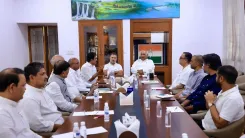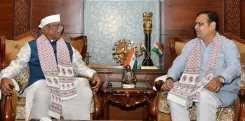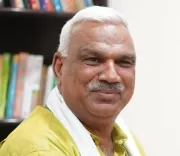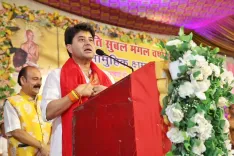Will Madhya Pradesh Cabinet's Approval for Direct Elections Transform Local Governance?
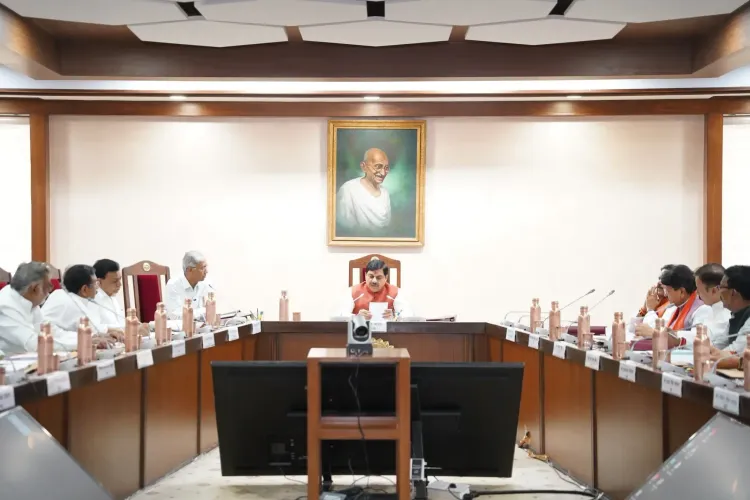
Synopsis
Key Takeaways
- Direct elections for urban local bodies approved.
- Bill to be introduced in the upcoming Winter session.
- Ordinance aims to clarify electoral processes.
- BS-I and BS-II vehicles to be phased out.
- Tax incentives for purchasing new vehicles.
Bhopal, Sep 9 (NationPress) The Cabinet led by Madhya Pradesh Chief Minister Mohan Yadav has approved a significant proposal to implement direct elections for urban local bodies, including Nagar Palika and Nagar Parishad.
According to the State's Urban Affairs Minister, Kailash Vijayavargiya, this decision aims to enhance transparency and improve the operational efficiency of local bodies across the state.
The minister further indicated that the state government plans to introduce an ordinance to clarify the electoral process and implement new reforms in the local body elections.
"The Bill is set to be presented in the Assembly during the upcoming Winter session," he noted.
Minister Vijayavargiya pointed out that while direct elections were previously conducted for local bodies, this approach was halted, and an indirect election system was adopted during the Covid-19 pandemic in 2020-21.
"With two years remaining until the next local body elections, aspiring candidates will have ample time to prepare," he mentioned.
Should the ordinance be approved, voters will directly elect the Presidents of the Municipal Council and Nagar Palika, rather than selecting them through Councillors.
Additionally, it was decided in the meeting that a no-confidence motion against the chairman would require at least three-fourths of the Councillors' support to be enacted, according to Minister Vijayavargiya.
The Cabinet also resolved to eliminate BS-I and BS-II vehicles, citing their contribution to significant pollution compared to newer models.
To incentivize residents to dispose of their older vehicles, the state government will offer a 50% motor tax waiver on new vehicle purchases.
Moreover, the Cabinet members expressed their appreciation to Prime Minister Narendra Modi for reducing the GST, thereby benefiting the MSME sector and small traders, as conveyed by Minister Vijayavargiya to the press.

